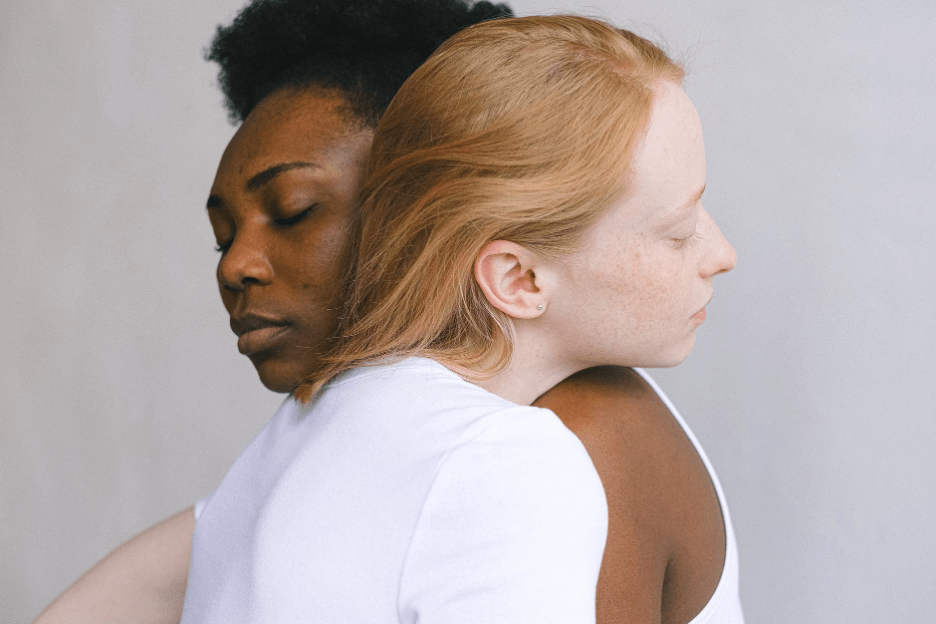
13 Ways Hugging Boosts Our Well-Being
Hugs are a simple gesture today, but they are beneficial for our physical and mental health. For example, when people hug, their bodies release serotonin, oxytocin, and dopamine which are the hormones responsible for feeling relaxed and happy.
That alone should make one wonder, how many hugs do we need a day? The answer is 8, but we’ll get into that later. This article will show some of the other uncommon benefits that should encourage more people to embrace hugging and how online therapy can help with coping with emotional issues.
Hugs Make Us Feel Connected
As human beings, we are wired to seek connection. It is easy to feel lonely or isolated in the world, and hugging helps us remember that we are not alone. Whether it is a hug from friends, family members, or even happy strangers, it reminds us that we are valued and connected to the world.
Hugs Help Us Bond in Relationships
Hugging brings about a feeling of love. Parents are encouraged to hug their children because it shows affection. The release of oxytocin while hugging also helps newborns bond with their parents.
In grownups, hugging and cuddling are encouraged because it enhances the feelings of love and reminds partners that they are valued.
Hugging Preserves Our Cardiovascular System
At times, life becomes challenging and stressful, negatively impacting a person’s physical health. For example, stress increases heart rate and blood pressure.
A hug once in a while helps a person calm down and lower blood pressure and heart rate.
Helps Fight Depression
We all get depressed sometimes, and when we feel low, it might be challenging to express how we feel. A hug helps a person feel a little better because it stimulates dopamine production, an inhibitor for depression.
So, we should hug people who feel depressed or a little down to lighten up their days.
Note that hugs alone can’t cure depression, and a person should seek professional help from a therapist, psychiatrist, or GP.
Hugs Help Relieve Pain
When we hug, we release endorphins that help dull pain. When oxytocin is released, it blocks pain signals and increases circulation among soft tissues, thereby soothing aches. So a person who has a minor injury can feel better when you hug them.
Raises Our Moods
When a person is feeling down, hugging them will elevate their mood. It is because hugging encourages serotonin production, which, when combined with endorphins, elevates a person’s mood and provides a sense of pleasure.
Improves Self-Esteem
Self-esteem develops from childhood. For example, young people grow up recognizing touch as a sense of value and love. Thus, children who receive hugs when they’re young develop to have more self-esteem.
Furthermore, adults also perceive hugs and kisses as a sign of affection and value. Thus hugging helps develop a healthy sense of self.
Hugging Communicates Emotions
The undeniable importance of hugs is that they communicate how people feel and what emotions they experience. People hug when they want to convey different emotions such as:
- Happiness
- Gratitude
- Fear
- Sadness
- Anger
Sometimes people can’t express what they feel with words. So, they use physical touch, such as hugging, to convey these emotions.
Hugging Defuses Arguments Between Couples
It’s normal for couples to have disagreements that might affect the mood of the partners. Partners who hug each other within the argument period are likely to get past it quicker because hugs dull the adverse effects of arguments.
Even when you are in a disagreement, hugging your partner shows that you still love them despite the conflict.
Helps a Person Sleep
Hugging or, in this case, cuddling has a calming effect related to the release of oxytocin. So, it might help people who have trouble sleeping get some quality sleep. Also, it promotes the feeling of safety and peace for most people, which can help counter any stress a person has before going to bed.
Hugs Reduce Stress
A hug can calm you down. There will often be stressful situations in life, and hugs can help calm a person down and reassure them. The release of the “feel-good” hormones, serotonin and oxytocin, when we hug counters cortisol production, which is responsible for stress.
Provides a Sense of Belonging
People will often hug those they care about. It can be their friends, family, and even coworkers. Anyway, a person will feel that they are recognized and even valued. Even when couples hug, it makes partners feel they are valued, loved, and appreciated members of the relationship.
So, hugs make people reassured they are not alone.
Hugging Boosts Your Immune System
Hugging helps counter stress and depression. The two are known to impact our immune system negatively, and countering their effects helps preserve it. So, giving a hug might not only make a person’s day but also improve their immune system.
Why Hugs Are Powerful
Why are hugs so powerful? Hugs are a great tool for preserving our physical and mental health, and here are several factors that make them powerful:
- They are versatile. Hugs can be used for greetings, congratulation, comforting, etc.
- Hugging is quick, and its effects are immediate
- Hugs are easy to perform and don’t require any skill or coaching
- Hugs are safe as a source of happiness or comfort
- Hugs cost nothing, and so you can give or receive as many as you can for free
How Often Should We Hug or Receive Hugs?
Have you ever wondered how many hugs you need a day? A psychologist Virginia Satir deduced that we need 4 hugs a day for survival, 8 daily for maintenance, and 12 hugs for growth.
You don’t necessarily need to hit those numbers to enjoy the benefits of hugging. Just be open to giving hugs to those who need them. You might make a person’s day and yours a little better.
Final Thoughts
In this period of the coronavirus pandemic, gestures such as hugs might be a thing of the past. Our need for human connection makes it difficult to get through quarantine. However, we should find ways to remain connected even if we cannot do it physically.
Our time with technology makes it a little easier thanks to online forms of communication, but even that might not be enough.
The isolation can quickly get to a person, and sometimes one might need professional help. It can be because of issues such as relationship problems, conflicts, emotional detachment, stress, or any mental health problems, including depression and anxiety.
Since if-office therapy meetings might be difficult at the moment, your best choice may be online counseling on Calmerry.
Their therapists can help you:
- Resolve conflicts
- Learn how to express and regulate emotions healthily
- Improve your self-esteem
- Work on communication skills
- Guide you to living a healthier and happier life
So, remember that you’re not alone and seek help when you feel you need it. Hopefully, the pandemic will end soon, and we will see a lot of people hugging again.



